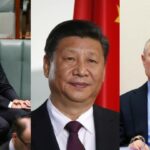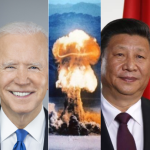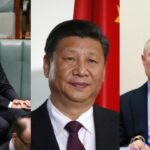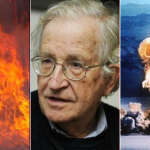Fighting Near Nuclear Power Plant Threatens the Globe
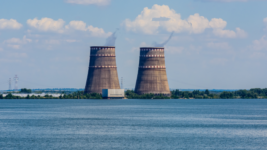
International Atomic Energy Agency (IAEA) director general Rafael Grossi announced in a tweet on Monday morning, that he and his team of inspectors will arrive at Zaporizhzhia nuclear power plant later this week to “protect the safety and security of Ukraine’s and Europe’s biggest nuclear facility”.
The reason why the UN nuclear watchdog is required to ensure safety at Zaporizhzhia is that back in March, at the outbreak of the war in Ukraine, Russia attacked the site and took it over.
Right now, Russia controls the plant, while Ukrainian engineers continue to maintain the operating of the facility.
Further, shelling around the nuclear site is ongoing, with both sides of the conflict blaming the other for the attacks. And the concerns about the largest nuclear facility on the continent being substantially damaged are obvious.
However, the shelling is not the worst threat, as the plant has thick protective walls. The greater fear is that the plant becomes completely disconnected from its power source, as the pumps used to cool the reactor core would cease operating leading to meltdown.
Indeed, Ukrainian president Volodomyr Zelensky just warned that such a scenario drew closer last Thursday, when Zaporizhzhia was briefly cut off from the local power grid, with a radiation disaster prevented as backup generators were triggered.
Flirting with danger
Despite the UN team of nuclear scientists being on its way, over the weekend, fighting continued in the southeast of Ukraine close by to the nuclear power plant, which has been repeatedly damaged during the six-month-long war.
The IAEA said the continued fighting in recent days, highlights the reason why its team needs to be deployed on the ground, as it aims to check on the damage, ensure the backup systems are operating properly, and inspect the condition the Ukrainian staff are working under.
The aerial strikes that have already hit Zaporizhzhia have damaged auxiliary equipment and the powerlines to the grid, but not the reactors.
And in a nation still reeling from the 1986 Chernobyl fallout disaster, the government has been distributing potassium iodide, a medication that can protect against radiation poisoning up to a point, to the general public.
Doomsday drawing closer
The fact that both Russian and Ukrainian forces are fighting in the vicinity of the largest European nuclear power plant should have the entire globe on tenterhooks in its own right, but it also highlights that this conflict has raised the bar on the potential for nuclear war.
On the day Russian forces began invading Ukraine, president Vladimir Putin made a veiled nuclear threat to the rest of the planet if anyone dare interfere, he then proceeded to place his nation’s nuclear arsenal on high alert, and he made another such nuclear threat in June.
As to what might happen if Russia fired a nuclear weapon upon Ukraine, one committee working for the Obama administration on this subject in 2016, found that the US would have to retaliate by dropping a nuke on Belarus, a Russian ally, regardless of whether it was involved in fighting.
The other potential flashpoint for a nuclear conflict is the rising tensions between the US and China. This was recently heightened by US House of Representatives speaker Nancy Pelosi visiting Taiwan, which led the East Asian giant to carry out a week of wargames around the self-governing island.
And for its part, our nation entered the atomic arena last September, when then PM Scott Morrison announced Australia will be acquiring nuclear-powered submarines that have the potential to fire upon mainland China, which led Beijing to threaten to punish us “with no mercy”.


